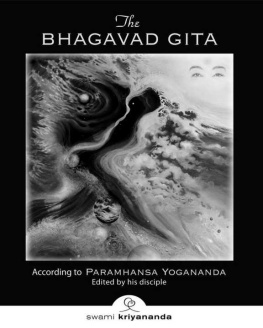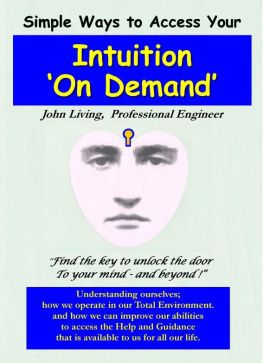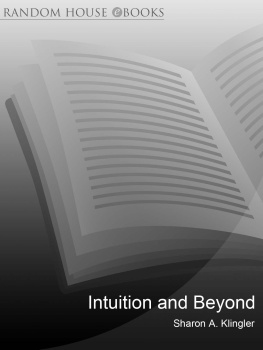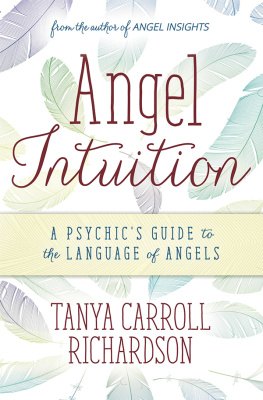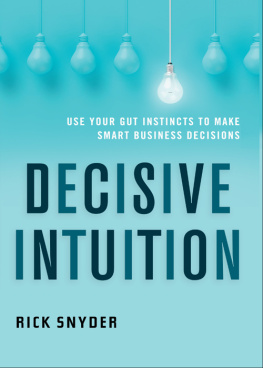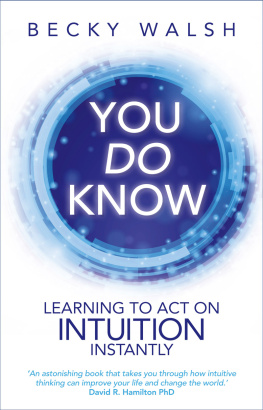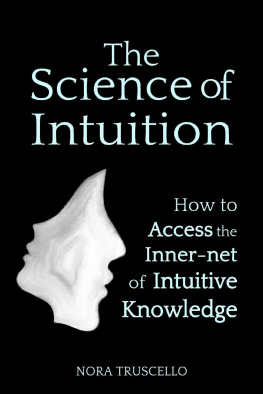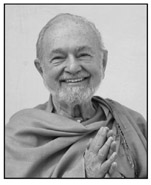About the Author
Swami Kriyananda is a man of wisdom and compassion in action, truly one of the leading lights in the spiritual world today.
Lama Surya Das, Dzogchen Center, author of Awakening The Buddha Within
Swami Kriyananda
Swami Kriyananda, who left his body in 2013, was a direct disciple of the great master, Paramhansa Yogananda, and an internationally known author, lecturer, and composer. Widely recognized as one of the worlds foremost authorities on meditation and yoga, he taught these principles and techniques to hundreds of thousands of students around the world
Kriyananda was born in Romania of American parents, and educated in Europe, England, and the United States. Philosophically and artistically inclined from youth, he soon came to question lifes meaning and societys values. During a period of intense inward reflection, he discovered Yoganandas Autobiography of a Yogi, and immediately traveled 3,000 miles from New York to California to meet the Master, who accepted him as a monastic disciple. Yogananda appointed him as the head of the monastery, authorized him to teach in his name and to give initiation into Kriya Yoga, and entrusted him with the missions of writing and developing what he called world brotherhood colonies.
An advocate of simple living and high thinking, Swami Kriyanandas more than 140 books cover a wide range of subjects, emphasizing the need to live wisely by ones own experience of life and not by abstract theories or dogmas. As a composer, Kriyananda wrote over 400 musical works. His music is inspiring, soothing, and uplifting. Many of his later albums are instrumental works with brief affirmations or visualizations and can be found through Crystal Clarity Publishers, which also offers his many practical and spiritual writings, which have sold over 3 million copies worldwide and have been translated into over 25 languages.
Kriyananda was also the founder of Ananda Sangha, a worldwide organization committed to the dissemination of Yoganandas teachings. In 1968 he founded Ananda World Brotherhood Village, the first spiritual cooperative community based on Yoganandas vision of world brotherhood colonies, dedicated to spreading the spirit of friendship, service, and community around the globe. Ananda is recognized as one of the most successful intentional communities in the world; over 1,000 people reside in Ananda communities in the U.S., India, and Italy.
CHAPTER ONE
What Is Intuition, and Where Does It Come From?
When we look at the world around us, we find a celebration of life in the universeshining through the stars, singing through the birds, laughing through children, and dancing with the wind in the trees. With all this beauty and diversity surrounding us, we sometimes yearn to feel more a part of it all. We want to sing in harmony with the music of the spheres. What happens all too often, alas, is merely that we add discord by adhering adamantly to our own ego-generated notes.
Weve all seen groups of little children singing. Theres usually one child who has no idea of the melody being sung, but he or she wants so desperately to be a part of the activity, that he sings enthusiastically whatever notes he likes, adding charm, if not harmony, to the music. Perhaps less innocently than that child, we intrude our private wishes saying, I want the world to be this way, or, Come on, everybody, lets do it my way. In consequence, the world is full of disharmony, and we hear the cacophony on all sides.
How may we tune into the greater symphony of life? A friend of mine, when confronted with any new situation, approaches the problem this way: He asks, What is trying to happen here? How often do we insist, instead, on changing reality to meet our own desires? In the process, we lose sight of the over-all purpose. We struggle to make sense of life segment by segment instead of as an over-all flow. Viewing everything fragmentarily, like pieces of a jigsaw puzzle, no coherent picture emerges, no path, and no direction to guide our understanding.
There is a way for us to find that path, howeverto feel a part of that greater reality, and therefore to know what is right for us as individuals. That way involves opening ourselves and becoming receptive to higher potentials of consciousness within ourselves, and thereby of living in harmony with the world around us. It involves developing our own inner sense of intuitive guidance.
Intuition is the innate ability in everyone to perceive truth directlynot by reason, logic, or analysis, but by a simple knowing from within. That is the very meaning of the word intuition: to know, or understand from withinfrom ones own self, and from the heart of whatever one is trying to understand. Intuition is the inner ability to see behind the outer forms of things to their inner essence.
Weve all experienced occasional lucky hunches, when we knew what street to take or what card to choose in a game without understanding how or why. This intuitive ability is latent within all of us. It can be developed consciously to bring clarity to all our decisions.
Intuition is neither feminine nor masculine. Sometimes we hear people talk about feminine intuition, because intuition relates more to the feeling aspect of human nature, but, in fact, it is equally present in both men and women. Ive observed, interestingly, that women are often more intuitive in their understanding of other people, whereas men are more so in the area of their work. But the truth is that intuition is calm, impersonal feeling. Women often experience life more by feeling in the form of emotions; men often tend to be more impersonal. A combination of the two qualities is what produces intuition.
For better or worse, every decision we make is influenced. It isnt possible not to be guided at all for the simple reason that we ourselves are fragments of a greater reality. We can say, however, I choose to be guided by that which leads to my own and others true happiness, rather than by that which ends in cul-desacs of suffering.
How are we influenced in the decisions we make? In part, its our exposure to the mass consciousness of others around us, which affects us on obvious as well as on subtle levels. Im not referring merely to the subliminal messages one receives while thumbing through a magazine or watching television. The influences I refer to are subtler still, and more powerful. We cant avoid them by shutting out sensory stimuli, because the very thoughts people think are all pervasive and deeply affect our consciousness.
Years ago in San Francisco, I had a very quiet apartment. At twelve oclock noon it was as quiet as at three in the morning. It was interesting to note, however, that at three in the morning, there was a greater, pervading silence. I dont mean silence only to the ears, but to the mind, because people everywhere were asleep. The thoughts of those around you, even more than their words and the obvious messages they put out, definitely affect the way we act and think.
We cant escape these influences. We can, however, determine how they affect us, responding to those that lead to beneficial results of success in life and inner fulfillment. Influences that might bring less fortunate consequences can be filtered out by intuitive insight and recognized for what they really areseeming to proffer upliftment, while in the end, like opium, bringing devastation.
The Three Levels ofConsciousness
We filter what influences us according to our habitual level of awareness. The totality of our consciousness is comprised of three levels: the subconscious, the conscious, and the superconscious. These levels of consciousness represent differing degrees of


